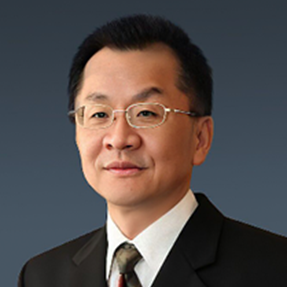Dr. C. L. Philip Chen
 |
|
|
Biography: C. L. Philip Chen is the Chair Professor and Dean of the School of Computer Science and Engineering, South China University of Technology. Prior to this position he worked in US in two different universities and Macao, as a tenured professor and conducted in administration. He is a Fellow of IEEE, AAAS, IAPR, CAA, CAAI, and HKIE; a member of Academia Europaea (AE), a member of European Academy of Sciences and Arts (EASA), and a Full Foreign Member of Russia Academy of Engineering (FFM-RAE). He received the IEEE Norbert Wiener Award in 2018, for his contribution in systems and cybernetics, and machine learnings, the IEEE Joseph G. Wohl Outstanding Career award, Wu WenJun Outstanding Contribution award from Chinese AI Association, and 2016 Outstanding Electrical and Computer Engineers Award from his alma mater, Purdue University. He is a highly cited researcher by Clarivate Analytics from 2018-2023. His current research interests include cybernetics, systems, and computational intelligence. For his contribution in these research areas, he received two times best transactions paper award from IEEE Transactions on Neural Networks and Learning Systems for his papers in 2014 and 2018 and received three-time Macau natural science award. In professional service, he was the Editor-in-Chief of the IEEE Transactions on Cybernetics, the Editor-in-Chief of the IEEE Transactions on Systems, Man, and Cybernetics: Systems, the President of IEEE Systems, Man, and Cybernetics Society. Currently, he is the director of two Guangdong Key Labs, the director of a research lab funded by the Ministry of Education, a Vice President of Chinese Association of Automation, and Co-President of Guangdong AI Industrial Association. |
|
|
Broad Learning System and its Dynamic Structure: From Incremental-Flatted to Stacked-Deep Models |
|
|
Abstract - The Broad Learning System (BLS) has been proved to be effective and efficient lately. In this talk, BLS and its several deep variants are reviewed, including its fuzzy variants in which much fewer and more explainable fuzzy rules for understanding are realized. Lastly, a new adaptive dynamically incremental structure, Stacked Broad Learning System, is proposed. The proposed model is a novel incremental stacking of Broad Learning Systems. This invariant inherits the efficiency and effectiveness of Broad Learning System that the structure and weights of lower layers of Broad Learning Systems are fixed when the new blocks are added. The modified incremental stacking algorithm computes not only the connection weights between the new stacking blocks but also the connection weights of the enhancement nodes within the BLS block. The plausible experimental results indicate the effectiveness of the proposed models. |
|